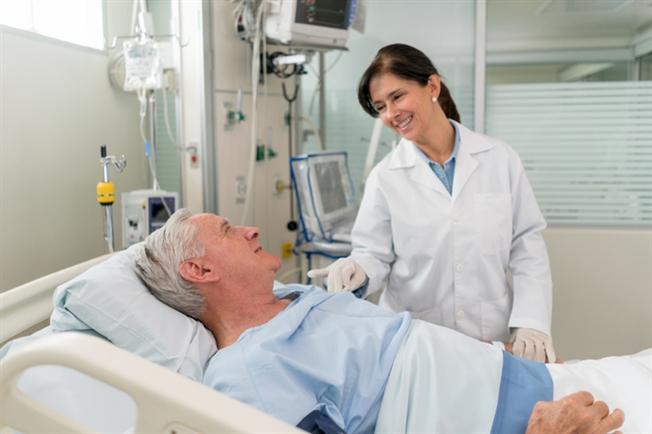What you should know before a trip to the emergency department

Nobody plans to take a trip to the emergency department, but medical emergencies can happen to anyone. The next time you find yourself facing an emergency or escorting a loved one to the emergency department, keep these tips from an emergency department doctor in mind to make your experience go as smoothly as possible.
Don’t drive yourself
If you’ve made the decision to come to the emergency room, chances are you’re experiencing symptoms like severe bleeding, headache, chest pain, vomiting or shortness of breath. In situations like these, you shouldn’t be behind the wheel.
“If you don’t have a family member or neighbor who is available to drive you, call an ambulance,” says Joseph Bushra, MD, emergency department doctor at Lankenau Medical Center, part of Main Line Health. “Even if your hospital is nearby and you feel like you can make it, calling for transportation or asking for someone to drive you ensures that you’ll arrive safely.”
While an ambulance may help transport you to the emergency department, do try to contact a family member or caregiver once you’ve arrived. Having personal support like this while you’re in the hospital can be important in determining proper follow-up care and following discharge instructions.
Know what medicine you’re taking
Quick: do you know what’s in your medicine cabinet?
While you might not have to list every medication you have in the bathroom cabinet, you should be able to provide a list of medications you’re currently taking to the emergency department staff that is caring for you. Not only can this information potentially determine the cause of your symptoms, but it could also help your care team determine the best treatment for you.
If it helps, keep a running list in a notebook or on your cell phone of medication name and dosage. Smartphone applications like CareZone help keep this information organized and easily accessible.
You might have to wait
No one wants to sit in a waiting room, especially when they're sick.
While care teams work to treat all patients as quickly as possible, the unpredictable influx of patients to the emergency department often means that some waiting is necessary. Understand that priority is assigned by the severity of a person's illness, not by the order of their arrival. The emergency department nurses are well-trained to sort patients and assign, or triage, priority levels. If you find yourself experiencing new or worsening symptoms as you wait, notify a triage nurse and ask to be re-assessed. Your priority level may have changed, and the treating team will want to know that.
Be honest
When you’re being cared for in the emergency department, it’s important to remember that the team of clinicians caring for you isn’t as familiar with your health background as your primary care doctor. For this reason, it’s important to be honest about your symptoms and health history.
“To ensure you’re getting the best care for you, it’s important for us to know about issues like opioid or alcohol addiction, drug use, and even issues like how much you exercise or how many drinks you consume each week,” explains Dr. Bushra. “In order to provide an accurate diagnosis, this information needs to be accurate.”
Ask questions
Your emergency department team will be asking questions to determine the cause of your pain but you shouldn’t be afraid to ask questions, either. Medical terminology can sometimes be confusing, so make sure you understand what tests are being done, any discharge instructions and ask questions when you’re confused or not sure. It’s important to be your own advocate, or advocate for a friend or family member you’re accompanying.
Make a follow-up appointment
The emergency department is the place you go, well, in an emergency. But it shouldn’t be the last stop.
“After a visit to the emergency department, you should call your primary care doctor to notify them of your visit and make a follow-up appointment,” says Dr. Bushra. "While we are usually able to exclude life-threatening emergencies during an ED visit, if often takes follow-up visits to establish the exact cause of your symptoms."
Since your primary care doctor is who will be treating you on a more regular basis, it’s important for them to be aware of your visit and pursue additional testing or screenings based on the findings from your emergency department visit. If you didn’t have a primary care doctor before your visit, now is the time to find one.
 Content you want, delivered to your inbox
Content you want, delivered to your inbox
Want to get the latest health and wellness articles delivered right to your inbox?
Subscribe to the Well Ahead Newsletter.
